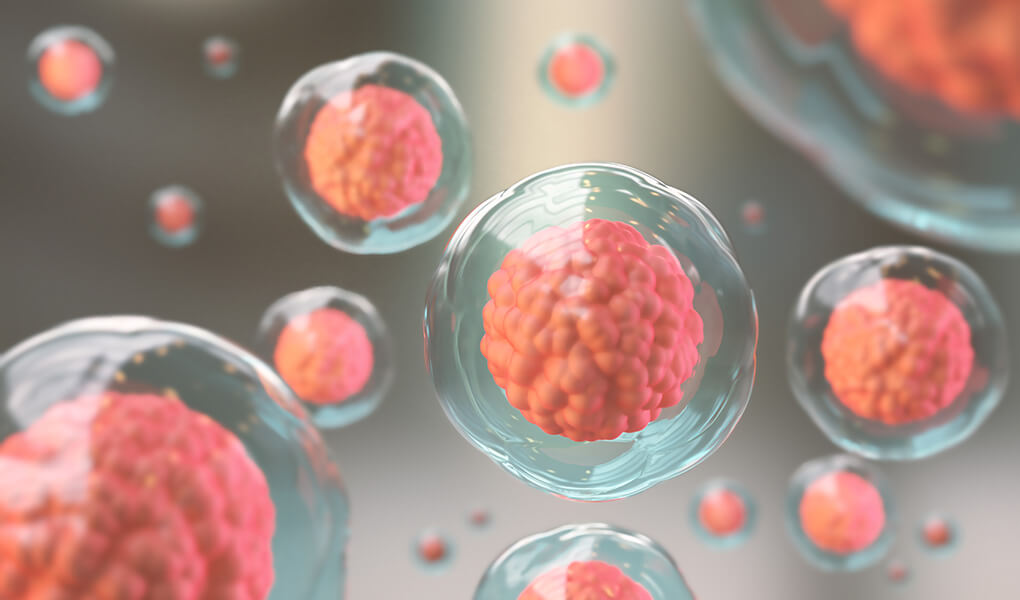HCG (Human chorionic gonadotropin), is an hormone that is released during pregnancy by plasenta. Once the embryo adherences to the uterus wall, cells called syncytiotrophoblast produces, hCG hormone. The function of this hormone is communicates with structure called corpus luteum within the ovaries. Progesterone which is produced by corpus luteum, is needed during pregnancy. In other word, Beta HCG hormone communicates between embryo and ovaries, and helps production of hormone which is needed for pregnancy.
Other then this, recent studies shown Beta SHCG has multiple functions. Key roles include;
– Helps, expanding uterus, as the embryo develops
– Helps increasing the veins in the uterus
– Blocks phagocytosises from attacking the cells that are feeding the embryo.
– Develops the navel string.
Beta HCG hormone is produced in the liver of the mother and 20% of it is disposed by kidney. Therefore, hormone can be observed either in blood and urine of pregnant women.
When HCG Values Increase?
During normal pregnancy HCG producticon starts when plancenta adherences to the uterus. It reaches to sufficient concentration (app. 5mlU/ml) after 8th to 11th day of insemination. This period, is equal to 3 to 4th week after last menstruation. Half the pregnant women, has about 25 mlU/ml concentration. Untill the 8th week, serum (blood) HCG concentration increases rapidly. On health pregnancy, HCG values doubles itself in every 72 hours.
Once the HCG reaches to 1000-2000 mlU/ml in body, with transvaginal ultrasound pouch can be observed.
Along with this, compared to other hormones, HCG shows the biggest difference in concentration for every pregnant women. Therefore, HCG value alone is not enough to detect healthy pregnancy.
What Does Extreme Increase of HCG mean?
Increased value of H CG can have many reason. To eliminate these reasons, test needs to be reconducted within 48 to 72 hours.
Reasons of High HCG values:
Miscalculation of pregnancy date
hydatidiform mole
ectopic pregnancy
Multiple pregnancy
Having increased HCG values outside of pregnancy may point out to other medical issues; these can be congenital anomalous such as down syndrome, testicle or ovarian cancer or liver tumours.
Diagnosing Pregnancy via Beta HCG
Beta HCG (serum tests), which are measured by blood for pregnancy diagnosis, are much more sensitive than urine tests. In most urine tests, the hCG level must be greater than 20 mIU / mL for test to be positive. Most pregnancy test kits in the pharmacy, cannot detect hyperglycolyzed forms of hCG. Therefore, in these tests, even if the person is pregnant, they may get negative results, especially at a very early stage. This is called false negative.
On the other hand, blood tests are very sensitive. When blood tests are done, if the HCG value is below 5 mlu/ml results is determined as negative, in other word it means negative results, if the value is above 25 mlU/ml result is positive. Values in between 6 – 24 mlU/ml is defined as grey area, and test is repeated within few days.
On the pregnancy ends with 7 to 60 days HCG values are dropped down to 0. Following up HCG decrease is important for molar and ectopic pregnancies.
Beta HCG calculation, According to the beta hCG value, it is estimated in which week of pregnancy you are. This calculation gives us an estimation for the reasons stating above.
Based on your last menstruation date, your estimated pregnancy week and Beta HCG values are given below.
3 week prepgnant: 5-50 mIU/ml,
4 week prepgnant: 5-425 mIU/ml,
5 week prepgnant: 20-7.300 mIU/ml,
6 week prepgnant: 1.080-56.000 mIU/ml,
7-12 week prepgnant: 7.650-290.000 mIU/ml,
13-16 week prepgnant: 13.300-250.000 mIU/ml,
17-24 week prepgnant: 4.000-165.000 mIU/ml.
What Does 0-5 Beta HCG Value Mean?
If the Beta HCG value are inbetween 0-5, that means pregnancy did not occur. Values such as 0.1 and 1.20 can be seen.
Why Beta HCG Values Decrease?
Just like high Beta HCG values, low beta HCG concentration can have many reasons. Therefore, test needs to be repeated within 48-72 hours.
Low Beta HCG values can have those common underlyig reasons
Possible miscarriages
blighted ovum
Ectopic pregnancy
Miscalculation of pregnancy date
Having low HCG hormone in the body, is not sufficient for feeding and development of the embryo there if the values are low continuosly healthy pregnancy is not possible. Increasing HCG values, is natural procedure of the pregnancy and there is no treatment to eliminate this. In the same way, there are no treatment for low HCG.
Beta HCG Test After IVF Embryo Transfer
The last step of the IVF treatment is, transfering the embryo to the uterus. After the transfer, embryo will adherence and Beta HCG production will start. If adherence occurs succesfully at the beginning minimal amount of HCG will be released HCG values will increase rapidly and it can be observed via blood test. At this point, pregnancy test is applied and result of the treatment is determined. After a long and exciting wait for families, the result of egg development and drug treatments will be determined with this test.
Pregnancy test in IVF is applied 12 days after the embryo transfer. Tests applied before 12 days, is not secure and does not provide clear results.
HCG value in blood, will be reduced to 0 after 7 to 60 days once the pregnancy ends. It is important to follow reduction of HCG for molar and ectopic pregnancy.
Difference Between HCG and Beta HCG Tests?
Today, the presence of hCG hormone in the blood is tested by Beta hCG (bHCG, b-hCG) test. The reason for this can be explained briefly as follows. The HCG hormone is a protein in structure and has two subunits called alpha and beta. Normally, these two sub-groups coexist and circulate in the blood. Non-linked alpha and beta units are called free beta-hCG or free alpha-hCG. This part in the blood is not tested because its alpha part enters the subunit of other hormones in the body, such as Luteinizing Hormone (LH), Thyroid Stimulating Hormone (TSH). The beta fragment is unique in terms of the binding property of the molecule. Because the tests should be sensitive, the presence of this part in the blood is determined by binding to the kits. The presence of hCG is therefore measured by the amount of Beta hCG in the blood. However, in some special cases, free beta and total hCG may be checked. The source of circulating free units may be imbalance due to any cause in production, or the presence of a unit that has become unable to associate with other subunits, as in some types of cancer. Again in some genetic diseases, especially free Beta hCG may increase in the blood. A screening test called a binary test measures the free Beta hCG levels in the blood of the pregnant woman.
For all your enquries about pregnancy and infertility you can reach to us from; 444 39 49.










Be the first to comment